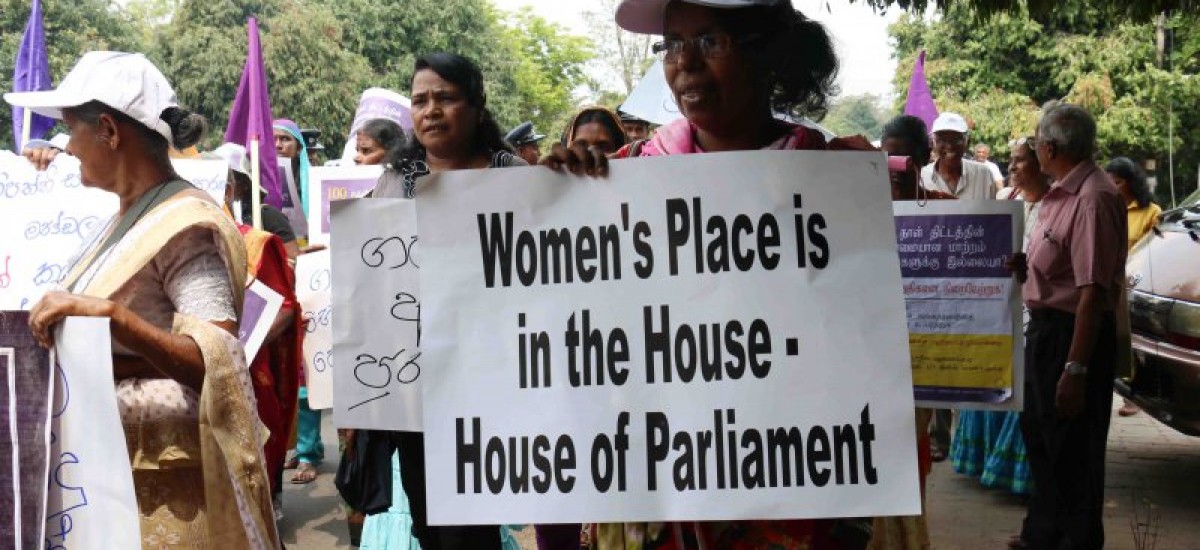Featured image courtesy CEPA
Celebrating a long fought victory, the Sri Lankan women’s movement was recently able to receive assurance of an increase in women’s political participation in Local Government institutions. Sri Lanka recently passed the amended Local Authorities Elections Act, which allocates a 25% quota for female representation in local government bodies.
This 25% would be solely based on a list prepared by the respective political parties. There is no doubt that increasing women’s political representation is a timely and important issue. However, it is incorrect to think that the mere increase of female representation in local government bodies is a victory. The problem is multi-faceted.
Firstly, the 25% quota will be filled through a list similar in nature to the national list. This has both pros and cons. On the positive side, women would not necessarily have to participate in more dangerous ‘masculine’ spaces where violence is often meted out against other candidates. Further, the immense financial support that is needed for election campaigns [and which has proved a barrier to female representation in the past] becomes irrelevant.
However, the introduction of this list suggests that women are unable to compete with their male counterparts and therefore could further increase gender stereotyping. Moreover, it will discourage political parties from including women in their candidate lists, while women too will have less incentive to compete against male candidates, rather trying to be included amongst the quota. The politicization of the list is also something that should be prevented.
This matter should be considered qualitatively rather than quantitatively. Introducing this list will indeed increase the number of women holding top positions in local government bodies. However, narrowing the focus of broader discourse from ‘achieving gender sensitivity’ to mere ‘physical representation of women’ would not solve the underlying problem.
Including gender sensitivity in the decision making process is an issue that needs to be dealt with through understanding, and in a holistic manner that can be obtained through the cooperation of all, particularly males. The patriarchal values currently existing in society cannot be eliminated in a day. Most of the women who will be appointed to local government bodies will themselves be a product of patriarchal social structures and will unconsciously perpetuate gender stereotypes that have already been instilled in their minds.
The exclusion of ‘men’ as a gendered category because of the hegemonic position they hold in the gender hierarchy should also be questioned. It is true that men’s political representation is extremely high compared to women’s political representation in Sri Lanka. However, do the decision-making processes consider ‘men’ as a gendered category – or are their issues veiled by the idea that decision making is the threshold of men? Are men aware about their issues as a gendered category? For example, male sexual victims are often marginalised in the process of reconciliation and their narratives are hidden. The fear of emasculation means these stories often do not surface in public discussion, which is yet another structural issue in the patriarchal structure, faced by men.
Increasing the women’s political participation in local government institutes is a promising first step. However, quality representation can only be achieved through improving the gender sensitive attitudes among each and every gender group. Understanding each other and making gender sensitive decisions is essential. The Sri Lankan women’s movement (including feminists, civil society and all individuals who fight for the same rights for women) should engage in a discussion with other gender categories, especially with men, as otherwise only one facet of the problem will be addressed.

